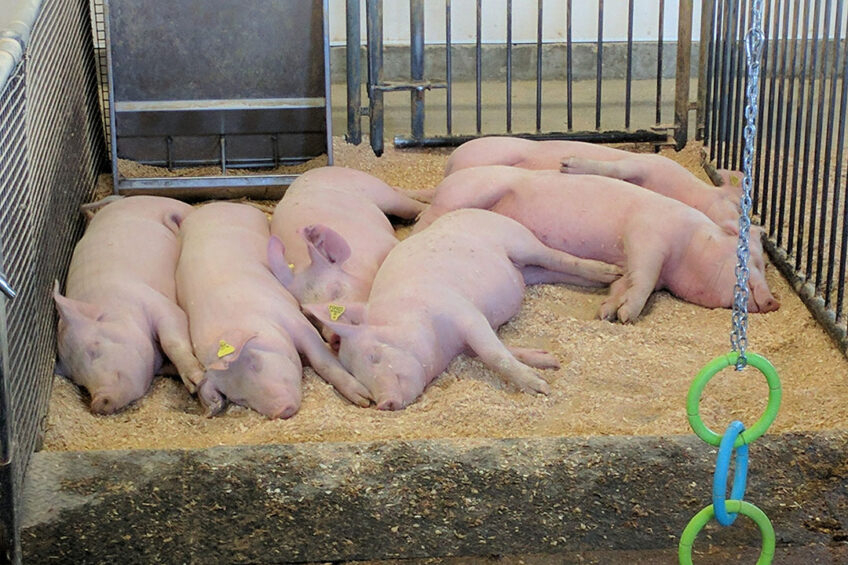November 26, 2025 | 22:15 GMT +7
November 26, 2025 | 22:15 GMT +7
Hotline: 0913.378.918
November 26, 2025 | 22:15 GMT +7
Hotline: 0913.378.918

Photo: Canva
This would enable a more accurate assessment of differences in housing, pig interactions, transport and other factors at various farms that all directly affect pig welfare.
This comes at the same time a new pig welfare initiative has just been started in the province next door, Manitoba, where most of Canada’s pigs are produced. The Winnipeg Humane Society has paid for billboards across the city (Manitoba’s largest urban centre) to highlight pig welfare concerns such as transport trailer temperatures and housing.
The Manitoba Pork Council responded by stating that almost all Manitoba pigs are now housed in groups, including about half of province’s sows. All Canadian pig producers must transition to larger gestation crates and group housing systems by mid-2029, as stipulated by the National Farm Animal Care Council’s Code of Practice for the Care and Handling of Pigs.
Research lead Dr Seokbum Ko at the University of Saskatchewan explained recently that he and his team have placed digital camera in a Saskatchewan processing plant that are capturing video of pig carcasses coming down the line after they have been scalded and hair removed.
Artificial intelligence (AI) software then captures images from this video of the sides and back of each carcass. The software is currently being trained to detect lesions on areas of the pig body particularly of interest to welfare, such as the tail, flank and shoulder. The software will then be trained to differentiate between types of injuries, for example those caused by bites.
“The end goal is that the models will detect the lesions on the pig carcasses, identify the lesion type and its severity and provide the lesion report for each pig,” said Dr Ko in a recent news report. “This information would then be collated to provide reports for the abattoir and each barn.”
Meanwhile in early September, representatives from Quebec-based DuBreton spoke at a meeting of the Global Coalition for Animal Welfare (GCAW) ‘Pig Welfare Working Group.’
GCAW, based in the UK, includes Maple Leaf Foods, IKEA, Nestle, Starbucks, Tesco, Tyson Foods and Unilever, with a membership total combined annual revenue of over US$ 590 billion.
2 DuBreton representatives spoke about how the company rears pigs without the use of farrowing crates and tail docking.
At the same time, UK supermarket chain Waitrose has taken further steps to ensure its continental meat supply is free of animal confinement by 2025. Waitrose only sells ‘outdoor-bred’ or free-range pork from British producers. Now, with a new long-term partnership with The Compleat Food Group of Italy in place, Waitrose will be sourcing over half its continental pork sales from pigs produced to higher welfare standards.
(PP)

(VAN) A new study reveals how the simultaneous effects of ocean acidification, salinity and loss of oxygen are making the world more fragile.

(VAN) Hopes are growing that the creation of the first 3D turkey gut model could be a turning point in the battle against the virulent blackhead disease.

(VAN) Tyson, America’s biggest meat supplier, plans to shutter one of its largest beef processing plants as the industry continues to struggle with low cattle supplies and political pressure from Washington.

(VAN) New FAO study shows how digital solutions are empowering farmers and fishers to prevent losses and build resilient agrifood systems.

(VAN) Brazil's COP30 presidency pushed through a compromise climate deal on Saturday that would boost finance for poor nations coping with global warming but that omitted any mention of the fossil fuels driving it.

(VAN) Poultry farmers in the UK have been warned that they could face one of the worst winters yet for bird flu.

(VAN) Prices of main-crop paddy have risen sharply, with jasmine rice hitting 16,100 baht per tonne — the highest level in years.